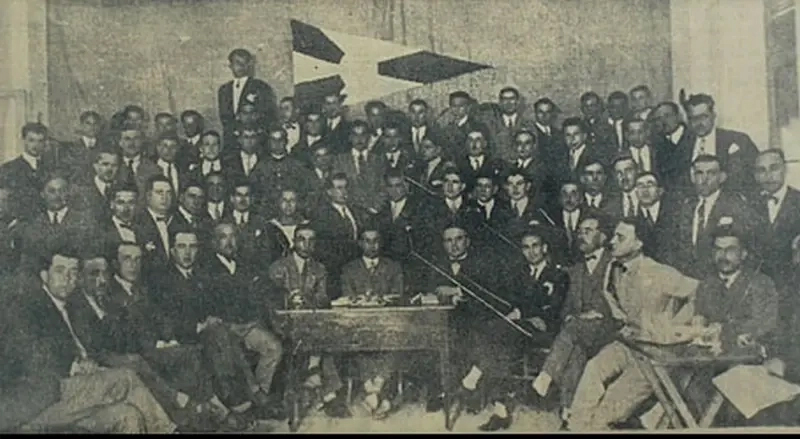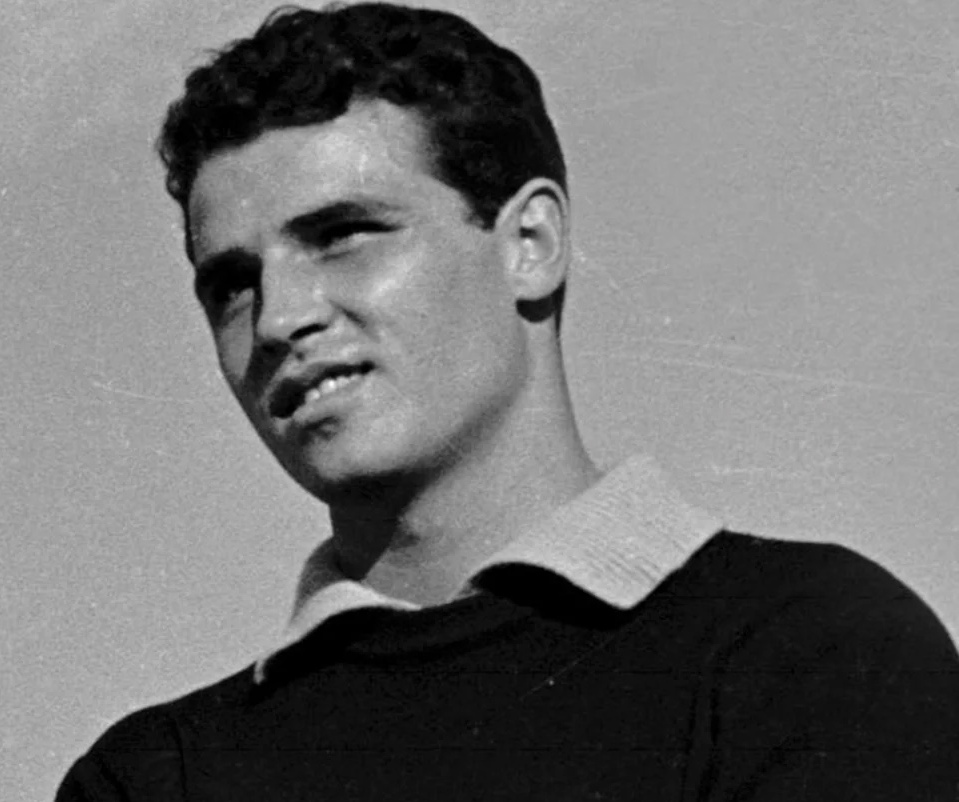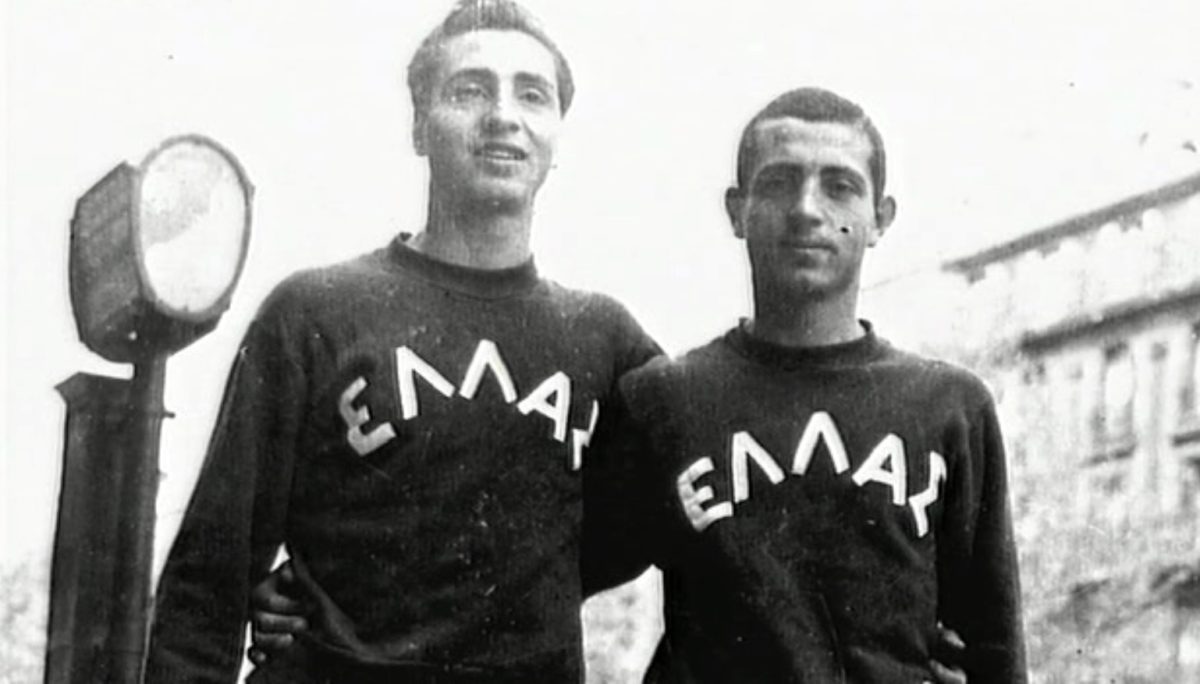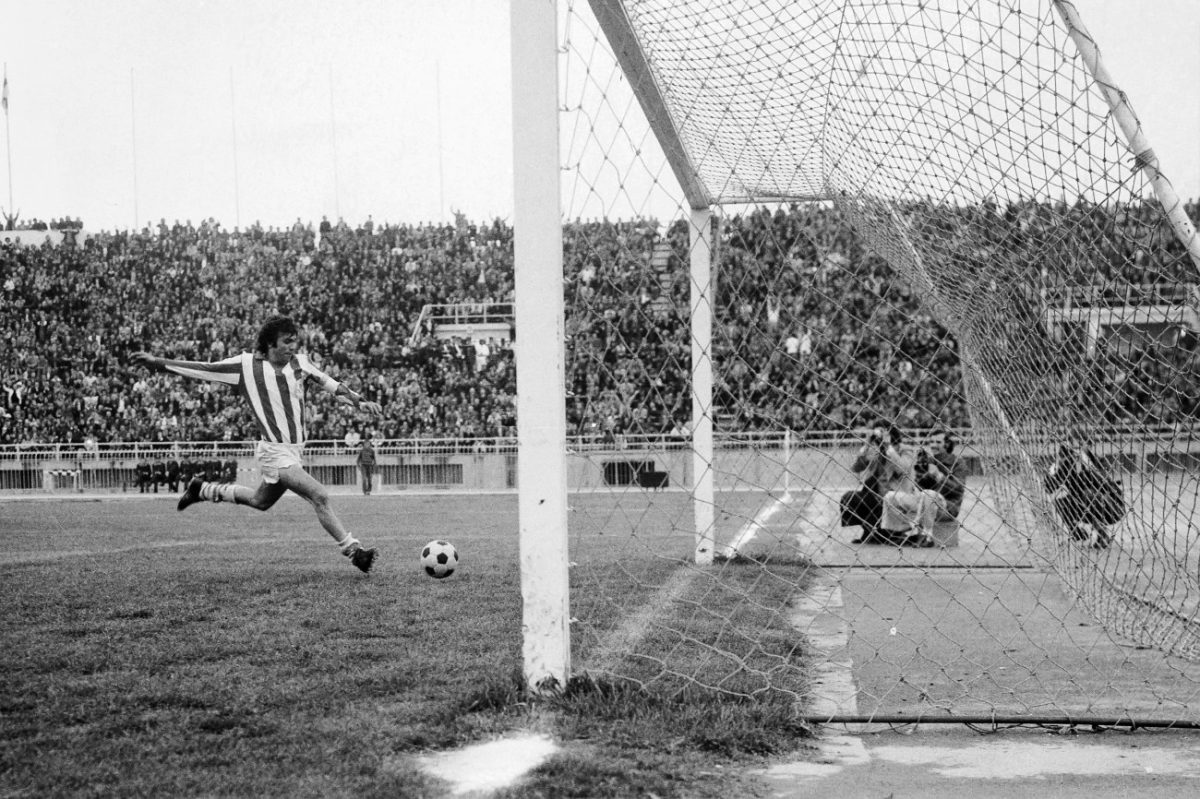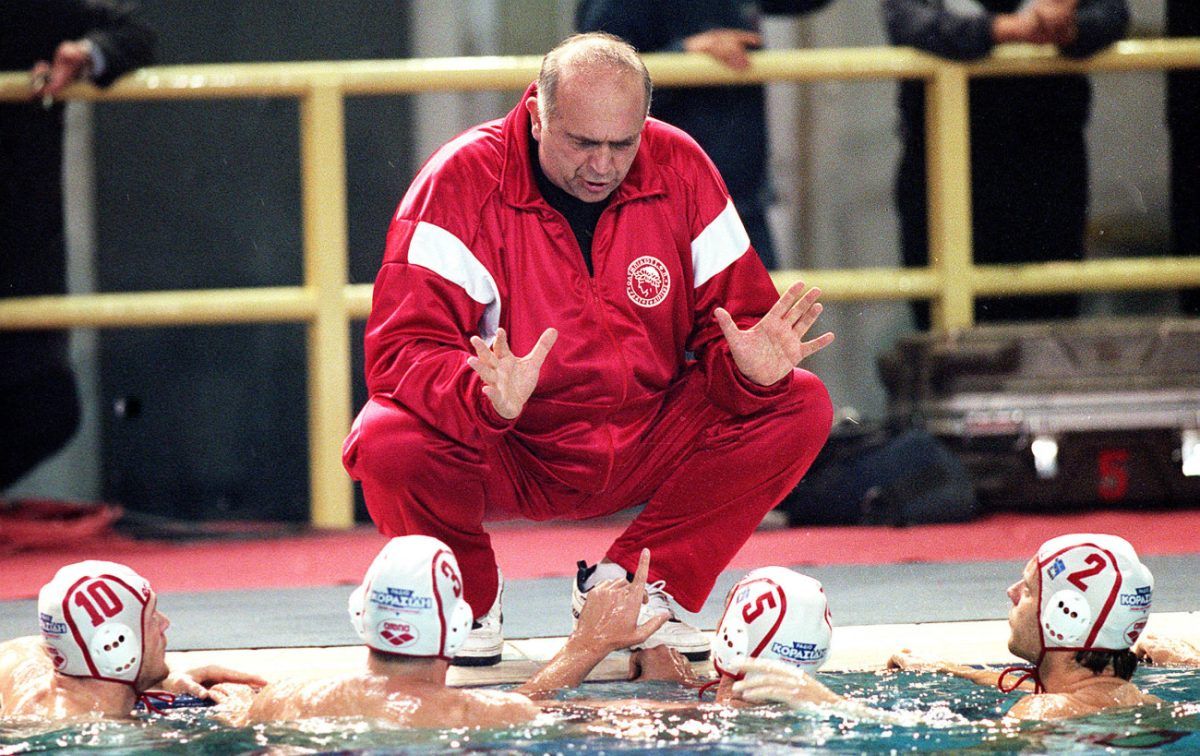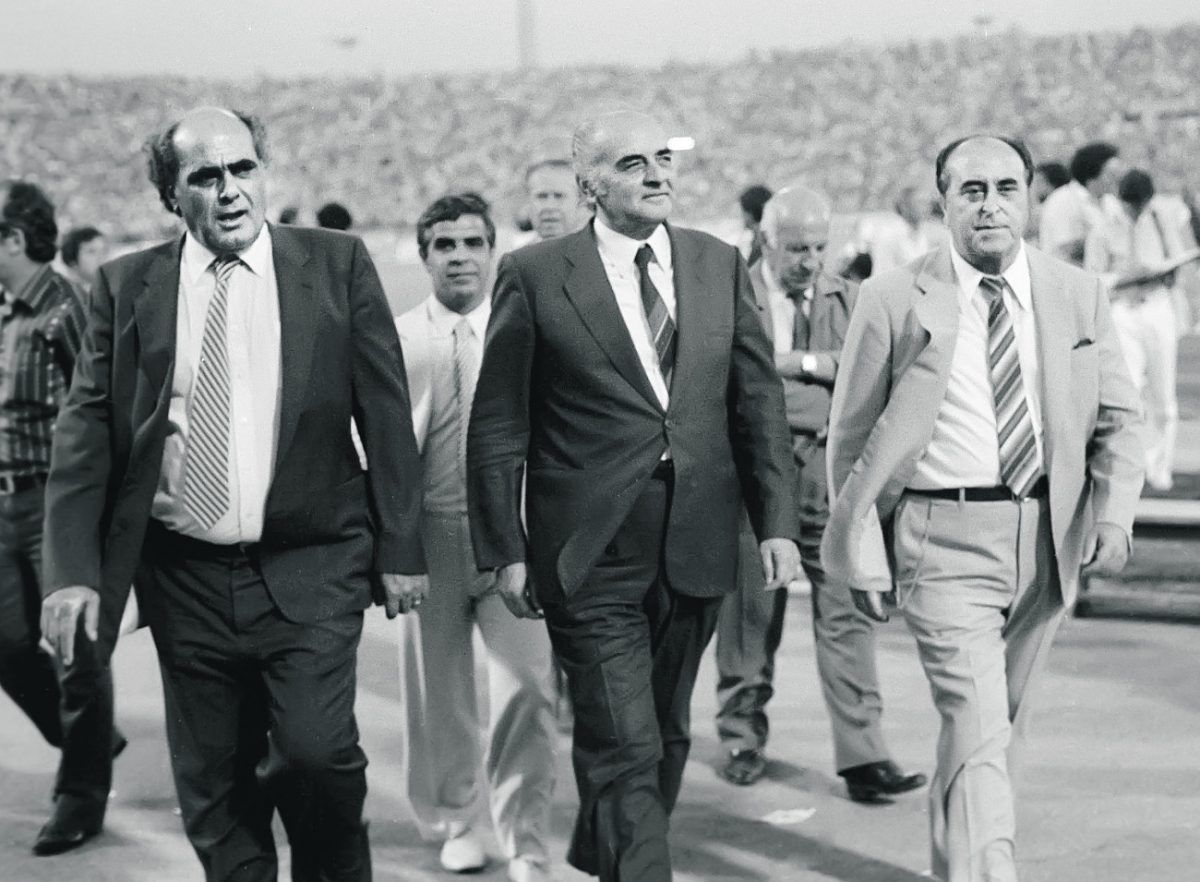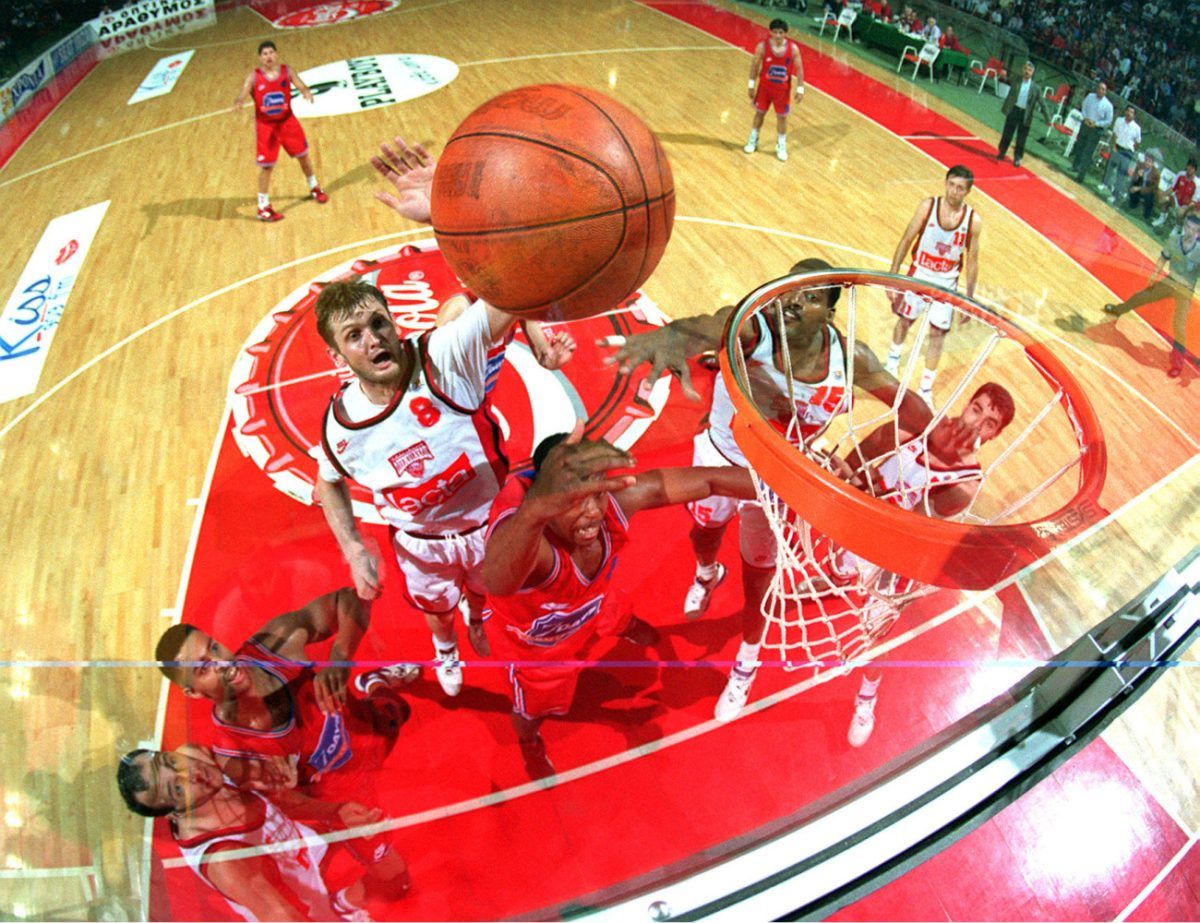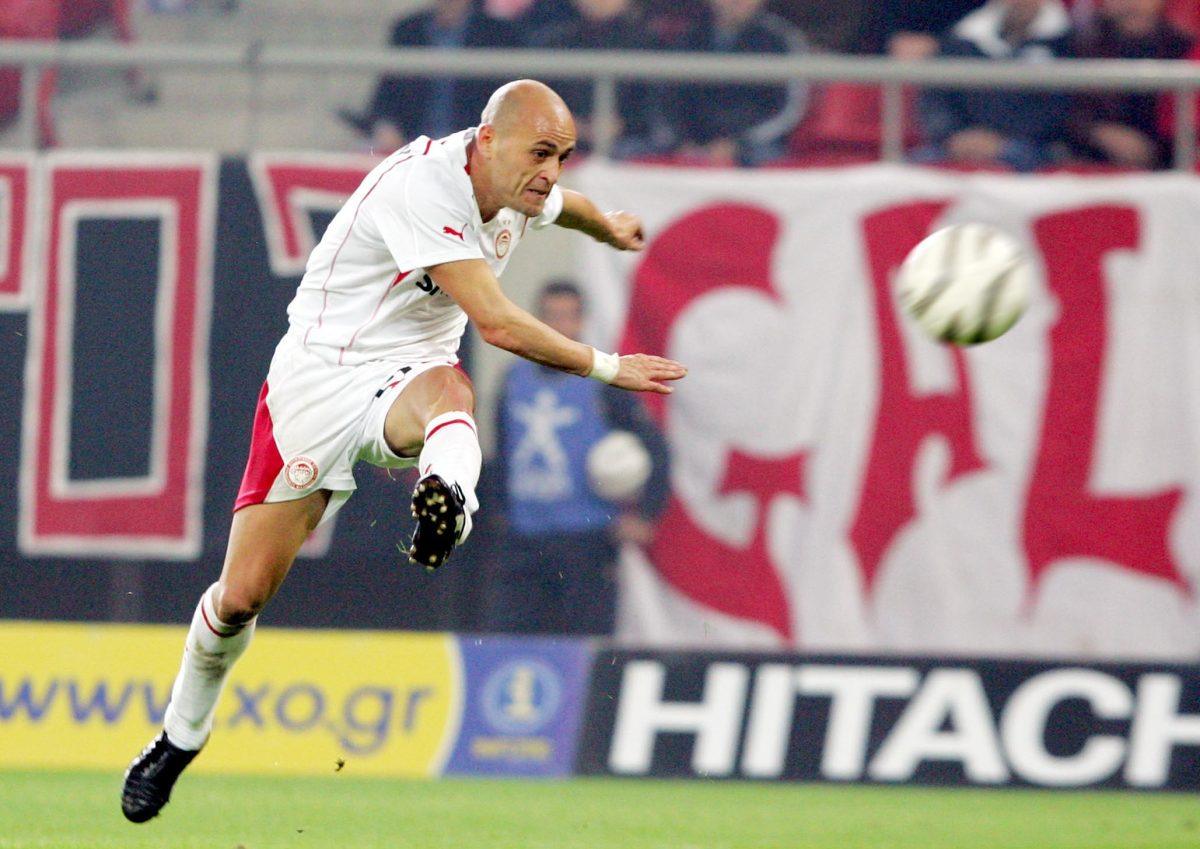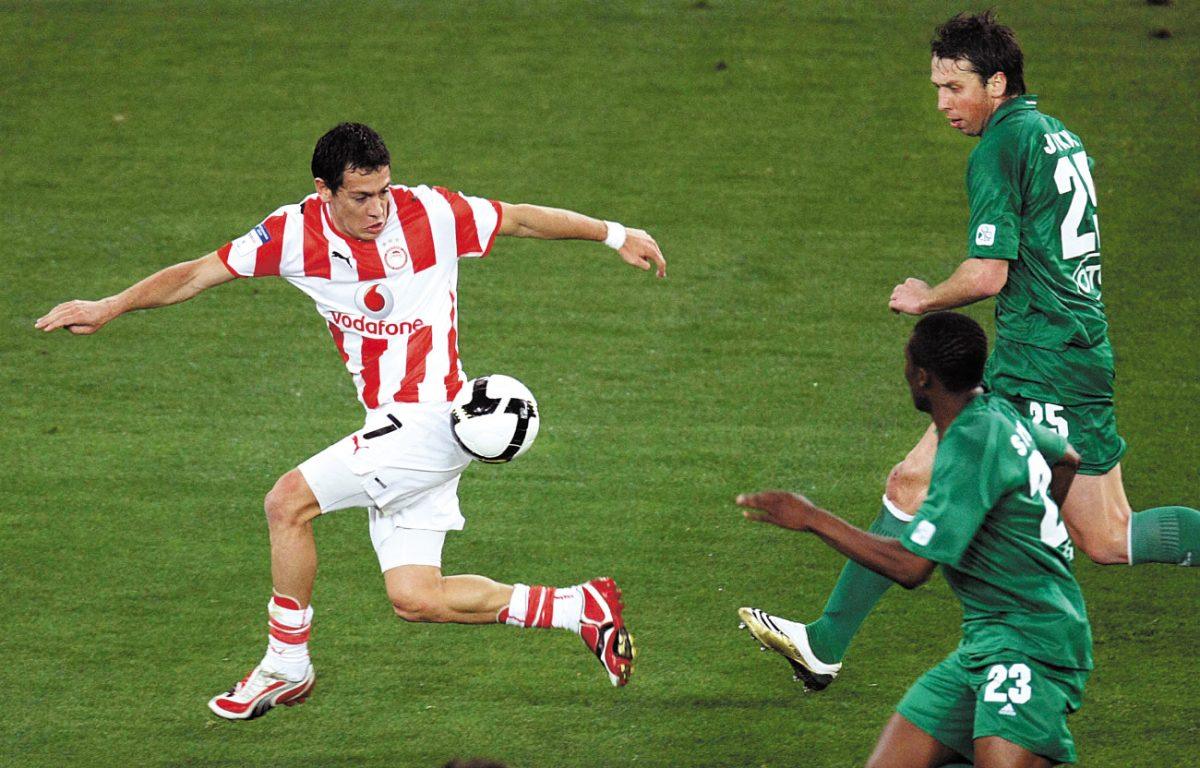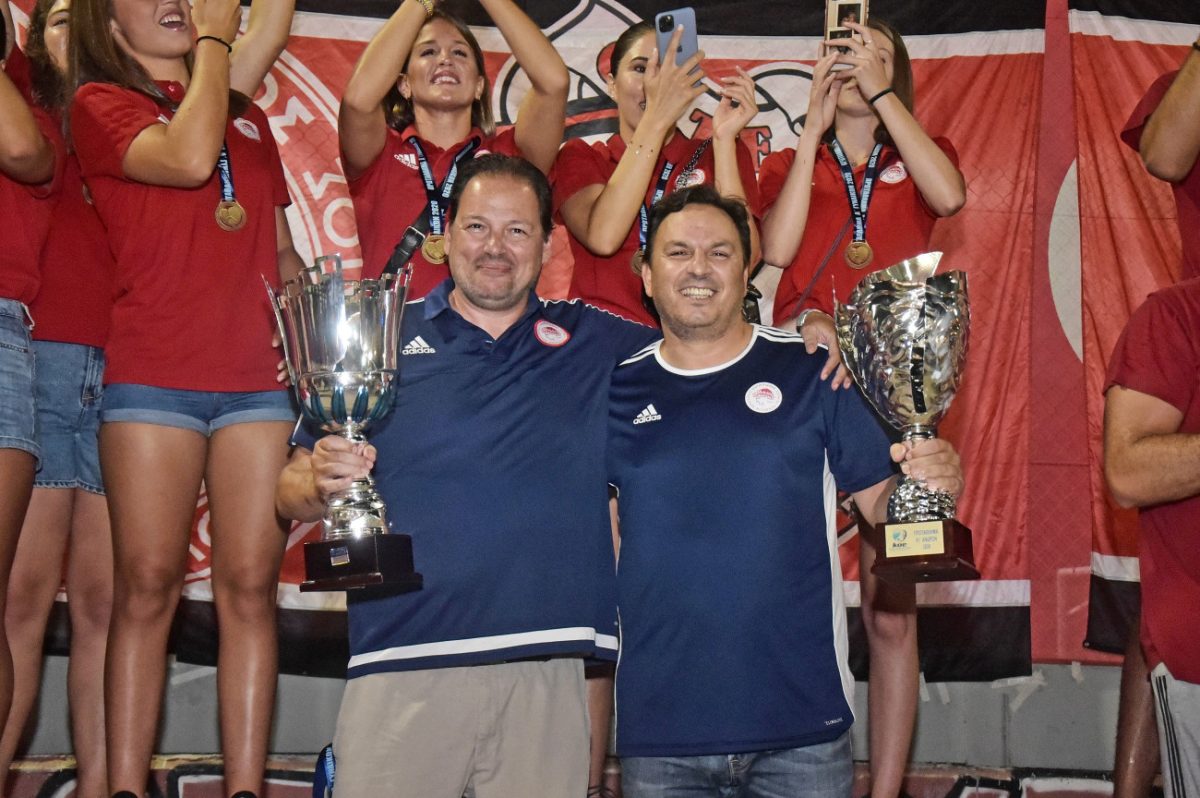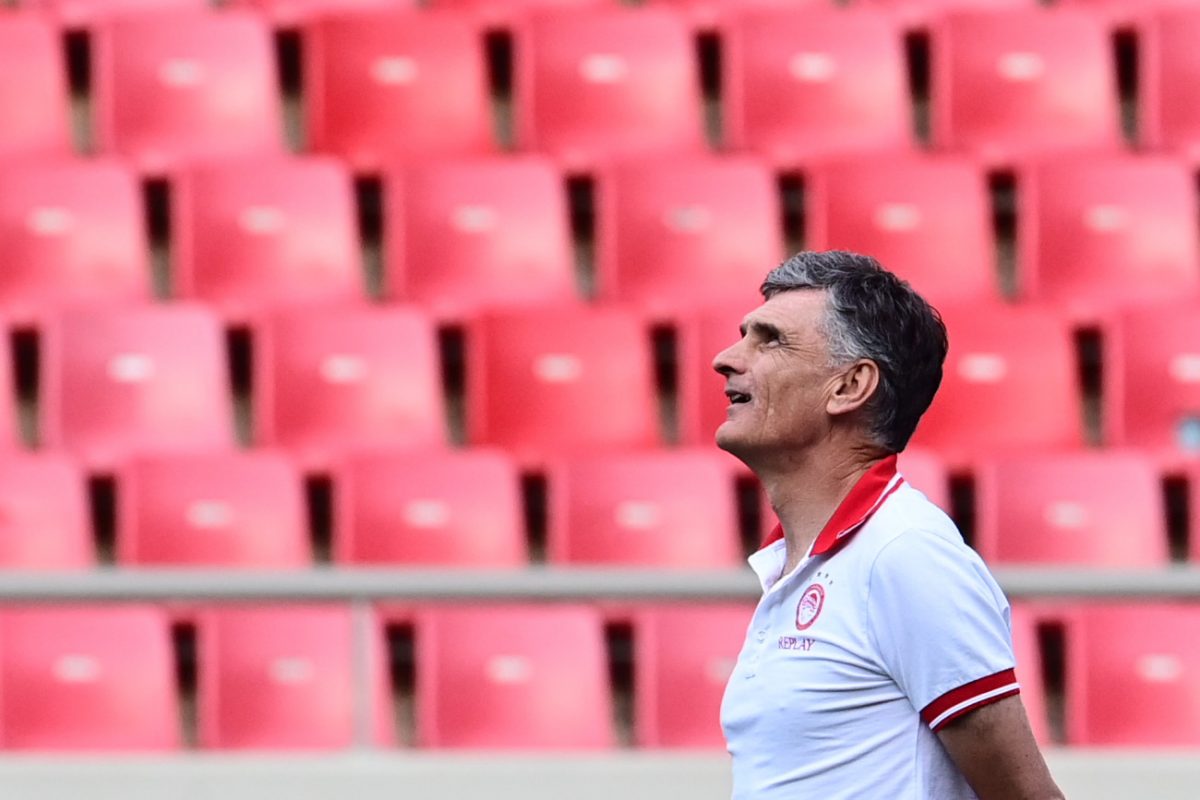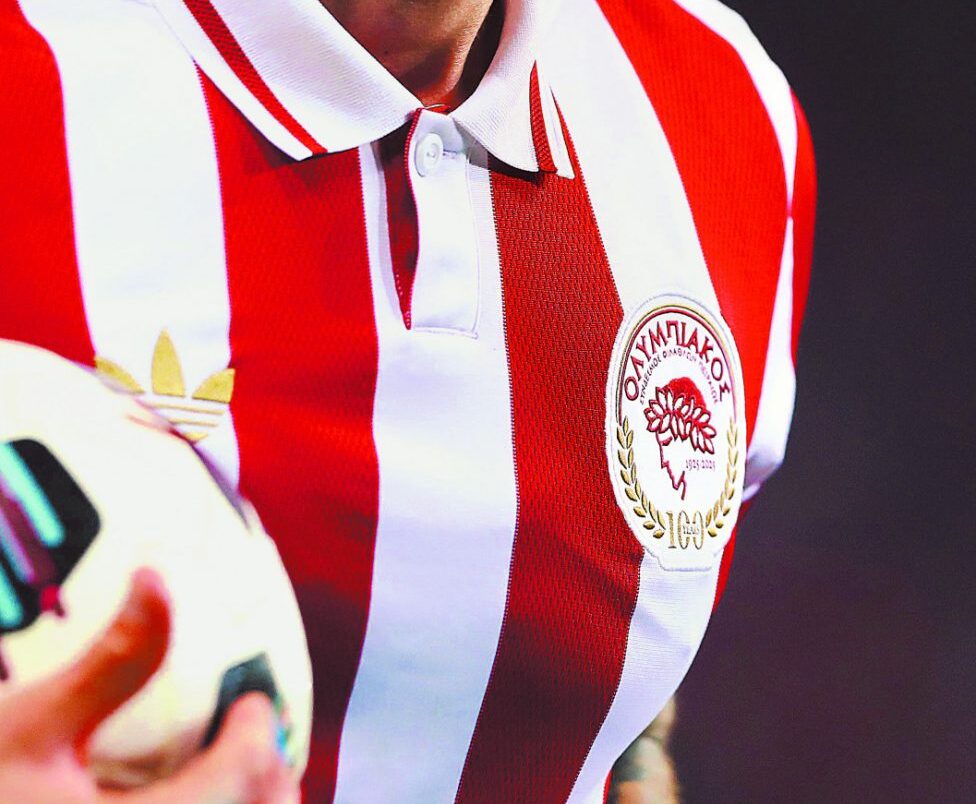In Piraeus, the shadows of past football managers pass and then disappear, yet some leave their stamp on history. One such figure was Dušan Bajević.
He was the manager who was destined to break the decade-old “curse” of the “barren years”. With an emphasis on speedy and creative wingers along the sides of the pitch, he placed Olympiacos on a different track, one which led to winning seven championships in a row (1997-2003) during his first tenure on Olympiacos’ bench. He picked up another five championship titles (2005-2009) in his second stint.
Turning back the calendar to the summer of 1996 and Bajević leaves AEK Athens after a glorious career, first as a player and years later as its manager. All of Greece is debating his decision to continue with Olympiacos. For AEK fans, this appears as an act of betrayal. For Olympiacos fans, it was the arrival of a leader who would lead them back to glory – and it didn’t take long for him to do so.
Olympiacos was thirsty for titles back then. The team hadn’t won a championship since 1987 and the fans were living with the weight of this “drought”. The team’s management knew they needed more than good players. They needed a man who knew how to build teams, impose himself in the locker room and provide direction. Bajević seemed ideal for the job.
What looked like a figment of the imagination started to gradually take shape. It took just a few months, but it happened. An April Fools’ Day headline in a sports newspaper in 1995 came true in June 1996. The unthinkable had happened, the «Prince of Neretva» had “Crossed the Rubicon” and changed the course of Greek football history.
It wasn’t just about winning the title, it was also the manner: playing a type of football that was dominant, fast, «geometric» and strategic towards achieving victory.
Titles: one after another
During his first season on Olympiacos’ bench (1996-97), the Reds won the championship, with leading players such Karapialis, Djordjevic and Alexandris. Bajević, as the “maestro” of this effort, with his cold logic and his insistence on discipline, greatly assisted the Reds in crushing the “curse”. It wasn’t just about winning the title. It was the manner: playing a type of football that was dominant, fast, «geometric» and strategic towards achieving victory.
A second consecutive title came in the 1997-98 season, accompanied by a «first taste» of success in Europe. Olympiacos eliminated an unknown FC Slavia Mozyr and took part in a difficult group against Rosenborg, Real Madrid and Porto. This Olympiacos team had an identity, rhythm, and Bajević was enjoying a wide acceptance. At the same time, certain on-field interactions were becoming a football «case study»: Grigoris Georgatos with Predrag Djordjevic on the left side, and Dimitris Mavrogenidis and Stelios Giannakopoulos on the right. Moreover, this team was also full of local talent, young and promising Greek players.
The 1998-99 season was a landmark, as the team reached the quarterfinals of the Champions League, qualifying from a group that included Ajax, Dinamo Zagreb and Porto. It also just missed eliminating Juventus in the quarterfinals, with one of the greatest performances by a Greek team in the competition. A 2-1 defeat in Turin left the door to qualification open. However, a 1-1 draw at the Athens Olympic Stadium on a rainy and windy evening will forever be remembered for a ball blown away from the waiting arms of goalkeeper Dimitris Eleftheropoulos and onto Antonio Conte’s path and unforgiving score – a shocking elimination was the result. A gust of wind was blamed for just missing out on what would have been a stunning qualification.
Then the unexpected occurred: in the winter of 1999 this cycle came to an abrupt end as Bajević was let go in an incomprehensible decision by the Club’s management – a decision that still makes no sense when analyzed a quarter century later. The manager who had created a model team was giving way to an unlikely successor, Italian Alberto Bigon, himself previously an assistant to Diego Maradona at Napoli, back when the legendary Argentine superstar was as large as Mt. Vesuvius in the Italian south. Olympiacos had won three consecutive championships (1997, 1998, 1999) at the time, the latter being a Double. The team had also reached the quarterfinals of the Champions League.
A key point for Bajević’s first departure apparently lies in the player acquisitions over the previous summer. Speculation at the time relates that the Serbian-Greek manager wanted prolific Slovenian striker Zlatko Zahovič but not Brazilian «wizard» Giovanni, ostensibly because the two played roughly in the same area of the pitch. Eventually they both arrived, Giovanni, in fact, transferring from Barcelona. The charismatic Brazilian attacking midfielder became the ultimate symbol of an entire era for the Piraeus side, whereas the Slovenian struggled to leave his mark before he departed for Spain and Valencia and later landing in Benfica.
Returning to «Dusko», however, as he was endearingly called. If Olympiacos came to be dominant in the late 1990s and after, a major part of the success is due to him. This manager spoke with an unemotional and steady tone but worked as a dedicated builder with an architect’s eye. What he built in Piraeus lasted for years. He remained the backbone of a team that came full circle years later at the small Rizoupolis pitch in northwest Athens, where a win over Panathinaikos brought a seventh title in a row.
The return
Bajević returned to Olympiacos in 2004 after a successful stint at PAOK Thessaloniki, with expectations again high. However, this second passage with the Reds did not last long. Despite winning the Double that season, the team was slow to gain the cohesion and freshness that was a hallmark of his first tenure. It was a time when Olympiacos was desperately searching for an away win in the Champions League competition and wanted a qualification from the group stage after years of failing to do so. Domestic success was now not enough.
The pressure by the fans and media was enormous, and an elimination in the Champions’ League group stage, after a loss to Liverpool at Anfield Stadium in the stage’s last game, generated heightened grumbling. Olympiacos could have qualified that evening even with a defeat by a one-goal margin. In fact, the Piraeus Club led midway through the game on the back of a goal by another Brazilian legend, Rivaldo. Everything collapsed in the second half with Steven Gerrard’s late goal marking a painful 3-1 defeat.
It’s a small consolation that Liverpool won the Champions League that season. The Double that followed didn’t change things. The second Bajević era was coming to a close. However, the experienced coach had re-established the foundations for another great team that later, under Norwegian manager Trond Sollied, would set new records in Greek pro football.

Bajević during his second stint at Olympiacos, here with the great Giovanni
The legacy
One remarkable legacy of Dušan Bajević with Olympiacos was his support of key players. He believed in and trusted Djordjevic, he supported Vassilis Karapialis, gave a pivotal role to striker Alekos Alexandris, developed players like Georgatos, who he transformed into a left back-cum winger, and even keeper Eleftheropoulos, who he discovered in the team’s youth academy. His influence on the identity of 21st century Olympiacos has been catalytic.
His presence with the Club marks one of its most glorious chapters. In the heart of many fans, Bajević was certainly not adored, however to any objective observer he is one of the greatest managers to ever manage Olympiacos. His contributions to turning a page, for the better, for all of Greek football is undeniable.



